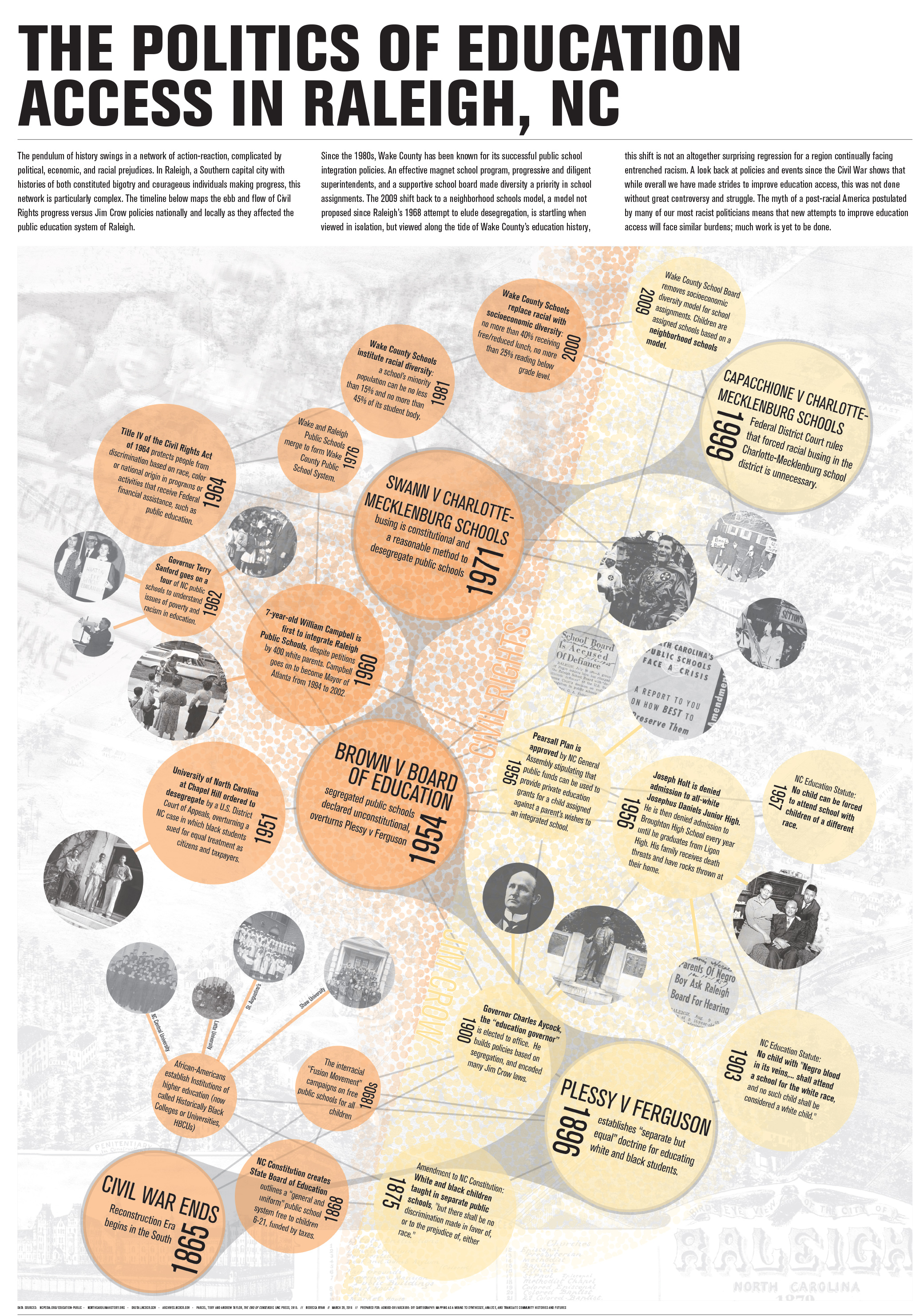 THE POLITICS OF EDUCATION IN ACCESS IN RALEIGH, NC
THE POLITICS OF EDUCATION IN ACCESS IN RALEIGH, NC
The pendulum of history swings in a network of action-reaction, complicated by political, economic, and racial prejudices. In Raleigh, a Southern capital city with histories of both constituted bigotry and courageous individuals making progress, this network is particularly complex. The timeline below maps the ebb and flow of Civil Rights progress versus Jim Crow policies nationally and locally as they affected the public education system of Raleigh.
Since the 1980s, Wake County has been known for its successful public school integration policies. An effective magnet school program, progressive and diligent superintendents, and a supportive school board made diversity a priority in school assignments. The 2009 shift back to a neighborhood schools model, a model not proposed since Raleigh’s 1968 attempt to elude desegregation, is startling when viewed in isolation, but viewed along the tide of Wake County’s education history, this shift is not an altogether surprising regression for a region continually facing entrenched racism. A look back at policies and events since the Civil War shows that while overall we have made strides to improve education access, this was not done without great controversy and struggle. The myth of a post-racial America postulated by many of our most racist politicians means that new attempts to improve education access will face similar burdens; much work is yet to be done.